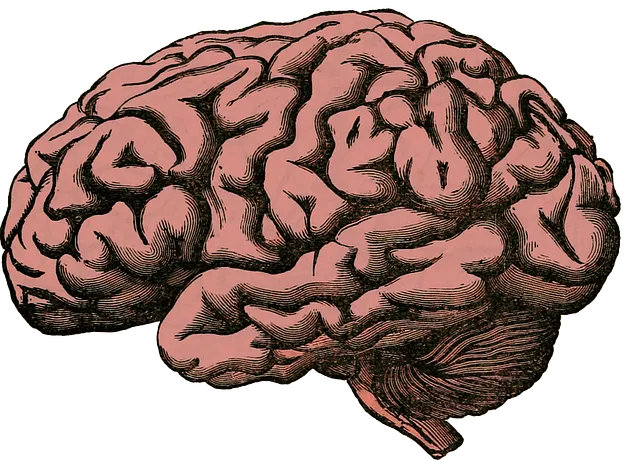The Denver Kaiser Permanente Behavioral Health Center is committed to cultural competency, prioritizing understanding and respecting diverse patient values, beliefs, and practices, especially in mental healthcare. Through staff training in conflict resolution, stigma reduction, and public awareness campaigns, the center creates an inclusive environment that overcomes cultural barriers to care. Their holistic approach includes interactive workshops, enhanced communication skills, tailored interventions, and practical techniques for risk management, fostering open dialogue and improving patient outcomes while addressing mental health issues culturally sensitively.
“Cultural competency training is a game-changer in healthcare, especially at Denver’s Kaiser Permanente Behavioral Health Center. This article delves into the critical role of such training, exploring how it navigates the complex landscape of providing care to a diverse patient population. We examine ‘Understanding Cultural Competency,’ focusing on why it matters and its impact at the center. Furthermore, we discuss ‘Identifying and Overcoming Biases’ as a core aspect of provider education, along with effective communication strategies and practical techniques for enhancing patient care, all tailored to the unique context of Kaiser Permanente.”
- Understanding Cultural Competency in Healthcare: Why It Matters in Denver's Kaiser Permanente Behavioral Health Center
- Identifying and Overcoming Biases: A Key Component of Training for Providers
- Effective Communication Strategies: Bridging the Gap Between Patients and Caregivers
- Building Cultural Bridges: Practical Techniques for Enhancing Patient Care at Kaiser Permanente
Understanding Cultural Competency in Healthcare: Why It Matters in Denver's Kaiser Permanente Behavioral Health Center

Cultural competency is a vital aspect of healthcare that ensures patients from diverse backgrounds receive quality and respectful care. At Denver’s Kaiser Permanente Behavioral Health Center, this principle takes center stage due to the city’s vibrant, multicultural fabric. Here, cultural sensitivity means understanding and appreciating the unique values, beliefs, and practices of each patient, especially when it comes to mental health.
The behavioral health center recognizes that effective treatment involves more than just clinical expertise. It requires addressing potential cultural barriers to care. For instance, staff members are trained in conflict resolution techniques to handle situations where language or cultural differences may lead to misunderstandings. Additionally, the center actively engages in Mental Illness Stigma Reduction Efforts and Public Awareness Campaigns Development to foster an inclusive environment and combat the pervasive stigma associated with mental illness across various communities.
Identifying and Overcoming Biases: A Key Component of Training for Providers

Identifying and overcoming biases is a crucial component of cultural competency training for healthcare providers. At the Denver Kaiser Permanente behavioral health center, we recognize that unconscious biases can significantly impact patient care, especially in diverse communities. By addressing these biases head-on, our training programs aim to enhance provider understanding of their own preconceived notions and how they might influence interactions with patients from different backgrounds, cultures, and experiences.
Through interactive workshops and discussions, we empower providers to recognize the impact of implicit biases on decision-making processes, leading to more accurate diagnoses and effective treatment plans. By fostering an environment where mental health awareness is prioritized, our training encourages confidence-boosting strategies that improve communication and build stronger connections between healthcare professionals and their patients. This approach aligns with our commitment to not only providing quality care but also shaping public awareness campaigns development focused on addressing mental health issues in a culturally sensitive manner.
Effective Communication Strategies: Bridging the Gap Between Patients and Caregivers

Effective communication is a cornerstone of quality healthcare. At the Denver Kaiser Permanente behavioral health center, training in cultural competency emphasizes the importance of bridging gaps not just between languages but also between patients and caregivers, encompassing emotional well-being promotion techniques and trauma support services. Caregivers learn to tailor their approach based on individual patient needs, ensuring clear understanding and comfort.
This involves active listening, empathetic expression, and a focus on building rapport. By fostering open communication channels, the center aims to create an environment where patients feel empowered to discuss their mental health, including the development of self-care routines for better overall well-being. This holistic approach ensures that cultural competency training goes beyond language translation, nurturing deeper connections and improved patient outcomes.
Building Cultural Bridges: Practical Techniques for Enhancing Patient Care at Kaiser Permanente

At Denver Kaiser Permanente behavioral health center, cultural competency training is more than just a concept; it’s a bridge to enhanced patient care. By equipping mental health professionals with practical techniques, the organization fosters an environment where diverse patient populations feel understood and supported. This approach not only improves treatment outcomes but also strengthens relationships between healthcare providers and their patients.
One of the key strategies involves integrating risk management planning for mental health professionals into everyday practice. By addressing anxiety relief and depression prevention as part of a holistic care plan, providers can create safe spaces that encourage open communication. This, in turn, allows patients to navigate sensitive topics more comfortably, leading to improved engagement and adherence to treatment plans. Through these practical steps, Kaiser Permanente Denver demonstrates its commitment to cultural competency, ensuring every patient receives the personalized care they deserve.
Cultural competency training is a game-changer for healthcare providers, especially in diverse communities like Denver’s Kaiser Permanente Behavioral Health Center. By identifying and overcoming biases, employing effective communication strategies, and adopting practical techniques to build cultural bridges, caregivers can significantly enhance patient care. This approach ensures that every individual receives respectful, equitable treatment, fostering a more inclusive and accessible healthcare environment. For the Denver Kaiser Permanente behavioral health center, investing in these training programs is a crucial step towards improving patient outcomes and strengthening community connections.





